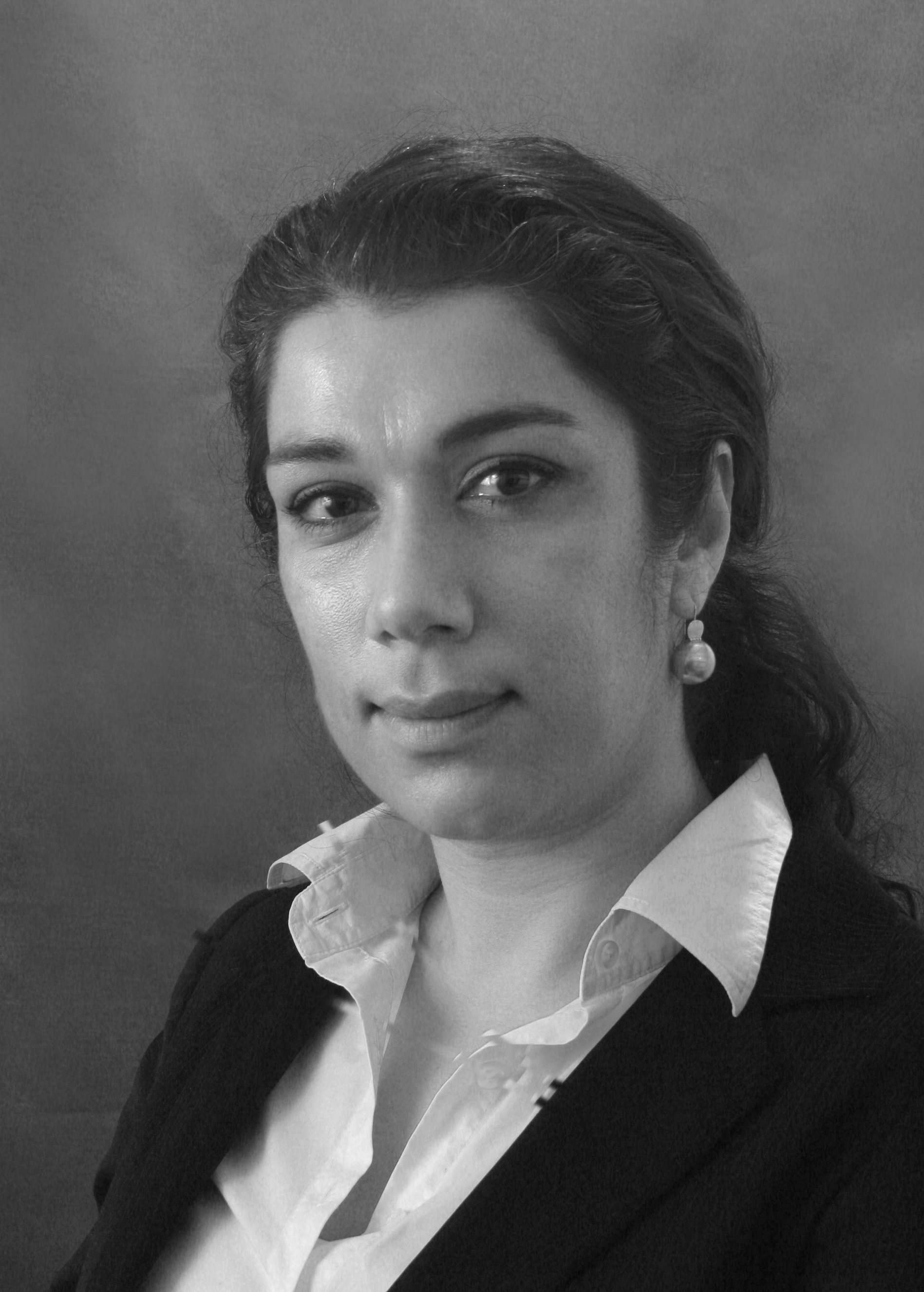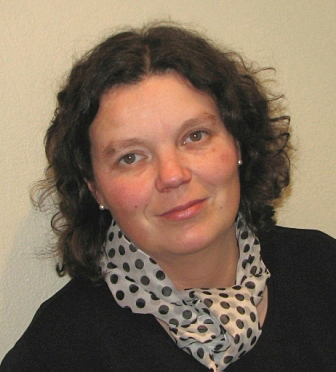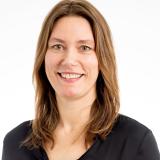New interest in networks
"We are finding that we fill a gap," says Laila Bokhari, who is coordinator of Women and Security, one of the 15 new and existing networks gaining new impetus this spring with funding from the Committee for Mainstreaming – Women in Science.
Thanks to funding from the Committee for Mainstreaming – Women in Science, new networks for women researchers are now being formed in Norway in several male-dominated fields. Many existing networks are also getting a boost. The reason is that the Committee has allocated NOK 600,000 to networks and networking activities for women researchers throughout the country. Of the 58 funding applications submitted, 15 of these were approved by the Committee.
"We are finding that we fill a gap," says Laila Bokhari, coordinator of Women and Security and researcher at the Norwegian Institute of International Affairs (NUPI). The network she belongs to brings together women who are active in the field of foreign, defence and security policy. Up until now the network has operated on an informal basis, but with financial support from the Committee, the goal is to formalise the network’s activities.
The main objective of Women and Security is to raise the level of expertise and support knowledge development among the network’s participants.
"Specifically, we want to create a cross-ministry, cross-institutional and cross-disciplinary group in which we widen the scope of debate, share information, become familiar with each other’s areas of expertise, encourage and support one another, and work together. We will also use the network to get an overview of who is working in the various areas both in Norway and internationally," she continues.

Began as a luncheon group
The network is comprised of women from a number of different areas, including academia, various ministries, the media and international organisations.
"We hope to increase awareness of women and their expertise, also in the traditionally male-dominated fields," says Bokhari.
She explains that Women and Security has developed into a dynamic network of like-minded individuals. At the same time, Bokhari believes that the network can also help to recruit more women researchers – mainly through competency development and dissemination in their areas of expertise. The network can also help draw attention to research results and provide information about women who can act as spokespersons in the media or give lectures.
Bokhari explains that Women and Security began as a loose network of women who met informally for lunch.
"The financial support means that the network can be formalised," she says.
"We can think more creatively about how we will meet and what topics we will address, but we also now have the opportunity to bring in resource persons and devote more time to expanding the network," Bokhari concludes.
Beyond the planning stage
Elsa Solstad, associate professor at Harstad University College, is one of the founders of the Network for Women Researchers in Economics and Business Administration, which has also been awarded funding. Solstad believes that the financial support makes a difference for the network.
"The financial support means that we can get off the ground; we are no longer in the planning stage. We will hold our first meeting and contact women at the other institutions in northern Norway," she explains.
The network began after Ms Solstad and Trude Høgvold Olsen, also from Harstad University College, contacted Dorthe Eide of the Bodø Graduate School of Business. These three women are among the few who work in the area of economics and business administration in higher education in northern Norway.

"We work at various institutions and in different subject areas. The institutions in northern Norway are small as well. This increases the need for a network that spans the institutions," says Solstad.
She believes that the network can meet different needs, serving not only as a meeting place and academic forum but also as a social network.
"In particular, we want to use the network to share information with each other, present articles for each other, organise seminars and gain inspiration. This network is an addition to the individual researchers’ national and international academic networks," Solstad points out.
"The network can help us identify opportunities to develop joint projects between the institutes or to produce articles together. Many of the women are at the same phase in their academic careers and can motivate each other," she says.
"We work in very male-dominated environments, and the threshold for women who apply for professorships is higher than for men," concludes Solstad.
New subject area
The Network for Women Researchers in Medical Informatics has also been awarded funding from the Committee. Gry Seland, one of the network’s four founders, notes it is a problem that there are too few women at the top of the career ladder in this field. Seland is a researcher at the Department of Computer and Information Science at the Norwegian University of Science and Technology (NTNU), and is affiliated with the Norwegian EHR Research Centre (NSEP).
"Medical informatics is a relatively new field in Norway, and there are a number of women at the master’s, doctoral and post-doctoral level, but none above this. We have to support each other because there are so few of us," she continues.
Seland would like to see the network participants discuss the topic of temporary positions at the university in relation to permanent positions outside the university.
"There are very few permanent positions advertised and little turnover at the universities. If vacant positions turn up, the network can encourage women to apply for associate professor or professor positions," she says.
"First we want to establish a local network, but in the long run we also want to develop regional, national and international contacts," she adds.
According to Seland, the women in the network also want to foster cooperation.
"The goal of the network is to create a forum where women can meet and establish contacts. In order to work together, we have to get to know each other first," she concludes.

Wide range of applicants
Karen-Lise Knudsen of the University of Agder and member of the Committee for Mainstreaming – Women in Science participated in the group that assessed all the applications for network funding. She explains that many networks applied for support for cross-disciplinary forums and to pay honoraria for keynote speakers.
The Committee based its funding decisions on specific criteria, including that the networks should be in male-dominated environments and that they should have open membership. Some of the networks stated that their objective was to qualify their members for promotion or to recruit women researchers. Others were oriented more toward helping their members meet women colleagues at other institutions and in other countries, she explains.
"It was good to see such a wide range among those who applied and among the 15 networks that received funding. Several independent institutions and university colleges were in the group awarded funding," Knudsen continues.
"I believe it is very important to meet colleagues, cultivate networks and make use of our contacts. Networks should be beneficial, not just enjoyable," she asserts. Knudsen also believes that the need for networks says something about the isolation women researchers feel in male-dominated environments.
"It is positive that many of the institutions themselves allocate funding to the individual networks because this means the networks will be more long term. By the same token, it is especially crucial that the Committee provides financial support when the institutions do not see the value of the network and do not allocate funding," she concludes.
Translated by Connie Stultz
The Committee for Mainstreaming – Women in Science received a total of 58 applications for network funding. The funding announcement was issued following a survey that showed a great interest in networks among women researchers. A total of NOK 600,000 was awarded to 15 different networks.
The following organisations were awarded network funding:
Department of Physics, University of Oslo
Norwegian Forest and Landscape Institute
Norwegian Institute for Nature Research
Østfold University College
Department of Philosophy, University of Bergen
Faculty of Medicine, University of Oslo
Women in medical informatics, Department of Computer and Information Science, Norwegian University of Science and Technology (NTNU)
Faculty of Mathematics and Natural Sciences, University of Oslo
Women in mathematics and natural sciences, University of Tromsø
International Peace Research Institute, Oslo (PRIO) and the Norwegian Institute of International Affairs (NUPI)
Norwegian School of Sport Sciences
Harstad University College and Bodø University College
Faculty of Theology, University of Oslo
Department of Neuroscience, Norwegian University of Science and Technology (NTNU)
Faculty of Dentistry, University of Oslo
The amount awarded to each recipient varies from NOK 20,000 to NOK 50,000.

